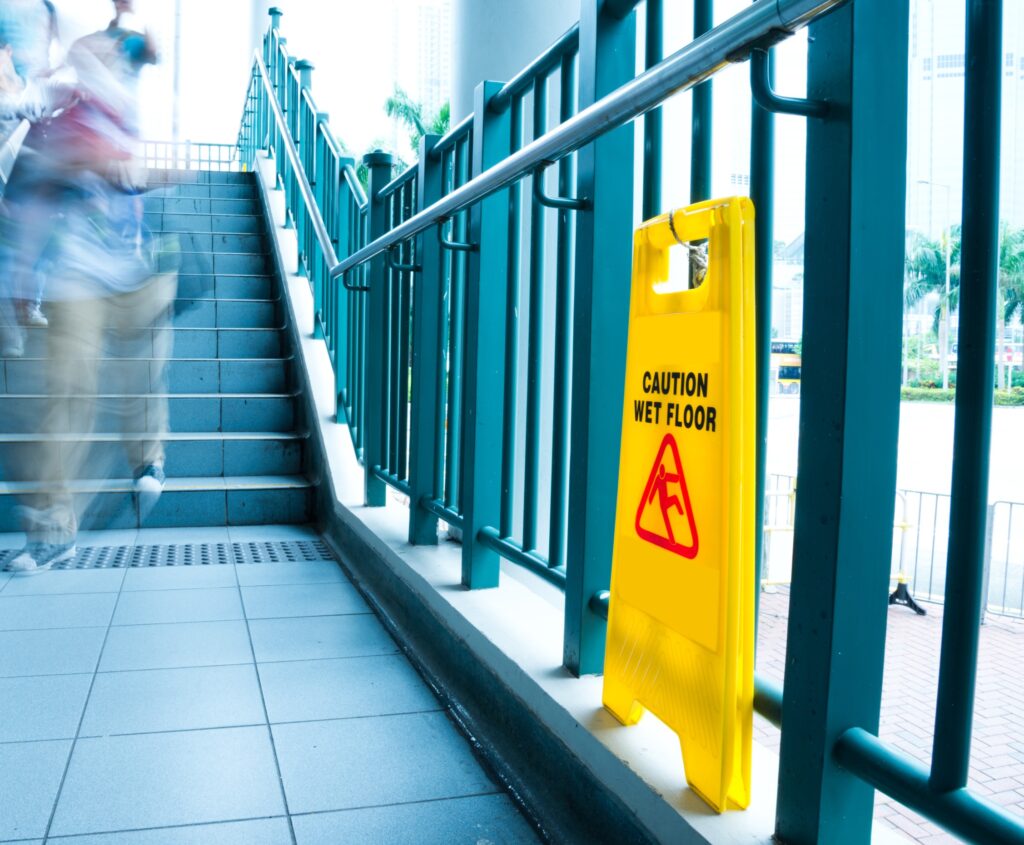
Stepping onto someone else’s property in California, whether it’s a bustling cafe or a picturesque vineyard, comes with an implicit trust. You expect the owner to ensure a safe environment, free from hidden hazards. Unfortunately, accidents can happen anywhere. When they do, understanding your rights as a visitor, customer, or guest becomes crucial. The Los Angeles injury attorneys at Lerner and Rowe explore California premises liability law and offer important tips for those who have been injured.
What Is Duty of Care?
At the heart of premises liability law lies the “duty of care.” California state law holds that property owners, whether residential homeowners or commercial business owners, must maintain their premises in a reasonably safe condition. This means regularly inspecting for potential hazards, promptly fixing any identified dangers, and adequately warning visitors of any known risks. Failure to fulfill this duty, leading to foreseeable injuries, can result in legal liability.
How Do I Figure Out Who’s Liable?
Generally speaking, the owner or proprietor of the property is liable for any injuries that occur on the premises. Here’s a breakdown of how duty of care works, depending on what your reason is for being on the property:
- Invitees: customers, tenants, or guests invited onto the property for the owner’s benefit (e.g., shopping in a store) receive the highest duty of care. Owners must actively inspect for dangers, fix known hazards, and warn of concealed risks.
- Licensees: social guests or those allowed onto the property for their own benefit (e.g., visiting a friend’s house) receive a moderate duty of care. Owners must warn of known dangers and avoid creating hidden hazards.
- Trespassers: individuals who enter the property without permission generally receive minimal duty of care. Owners only need to avoid willful or wanton harm and refrain from setting traps.
Breaching the Duty of Care
An owner becomes liable for your injuries if they breach their duty of care. This can happen in several ways:
- Failing to maintain the property in a reasonable condition: this includes neglecting repairs, leaving debris or spills unaddressed, or allowing hazardous conditions like uneven sidewalks or faulty stairs to remain.
- Failing to warn of known hazards: if the owner knows about a dangerous condition but doesn’t adequately warn visitors (e.g., signage or verbal warnings), they may be liable for resulting injuries.
- Actively creating hazards: in rare cases, if the owner deliberately creates a dangerous condition or sets a trap for trespassers, they can be held liable for even more severe consequences.
Proving Your Case
If you’re injured on someone else’s property, proving the owner’s negligence and your right to compensation can be challenging. Here are some key steps you should take:
- Gather evidence: take photos of the hazard, document the scene, and obtain witness statements if possible.
- Seek medical attention: promptly address your injuries and keep detailed medical records.
- Consult with a lawyer: an experienced California premises liability attorney can assess your case, advise on legal options, and guide you through the claims process.
Navigating premises liability claims on your own can be complex and emotionally taxing. The right attorney can handle this for you, fight to pursue compensation for your injuries, and hold the responsible party accountable.
Common Types of Premises Liability Claims
The spectrum of premises liability cases is broad, covering a wide variety of scenarios where an owner’s negligence leads to injury. Some of the most common types of claims include:
- Slip and fall accidents: wet floors, uneven surfaces, or improperly maintained walkways can all lead to devastating slip and falls.
- Negligent security: inadequate security measures can leave visitors vulnerable to criminal activity or assaults.
- Defective premises: malfunctioning equipment, faulty railings, or structural defects can cause serious injuries.
- Swimming pool accidents: faulty pool equipment, slippery surfaces, or inadequate signage can put swimmers at risk.
- Animal bites: dog owners with aggressive or inadequately restrained animals can be held liable for bite injuries.
No matter what type of accident you had or the severity of the injuries you suffered, a California premises liability lawyer will work to help with insurance claims, getting your bills paid, and fighting for financial compensation to address your injuries, any lost wages you may have, pain and suffering, and much more.
Lerner and Rowe Can Help You File a Claim After a California Premises Injury
Need help filing a claim after suffering an injury on someone else’s property? Our team of skilled, caring lawyers is available 24/7 to help you fight for the compensation you deserve. Get in touch with us today for your free case review and evaluation by calling us at 310-INJURED,, connecting through LiveChat, or filling out a FREE online form.



